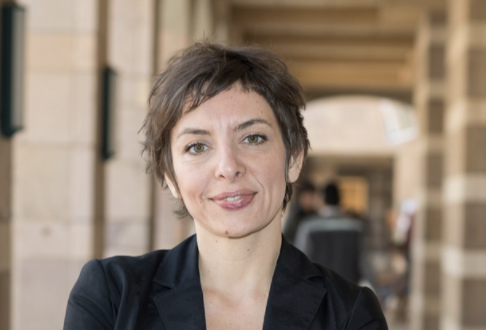By Alexa Silber
UC Santa Barbara history professors Anthony Barbieri and Sherene Seikaly were recently awarded $60,000 each by the National Humanities Alliance to further their research on the ancient Han Dynasty and Levantine mobility, respectively.
UC Santa Barbara historian Anthony Barbieri was recently awarded $60,000 by the National Humanities Alliance to fund his research on the ancient Han Dynasty.
Barbieri will use the grant to fund another year of research for the translation of “Discourses on Salt and Iron,” an ancient Han manuscript that has not yet been translated in its entirety to English.
The translation is complicated by the intricacies of interpreting the meanings of long lost words, phrases, and idiosyncrasies of the Han language. Barbieri will have to reconstruct the text and sift out any inconsistencies from past iterations. Given the many times this text has been passed down, this involves making editorial decisions about what past scholars have said or disagreed upon. Barbierie’s research will take him to China to review archeological sites.
“This is one of the most famous texts that survives from Ancient China and it's one of the few that focuses on economic and social issues and not just philosophy or military affairs which are much more common,” Barbieri said. He has been using the text throughout his career, on multiple projects, so it is familiar to him.
The Han Dynasty, birthplace of the ancient manuscript “Discourses on Salt and Iron,” which UCSB historian Anthony Barbieri is translating.
Barbieri expects the project to take four or five years and he plans to include a detailed introduction on the Han technologies, salt and iron industries, and government monopolies. Once complete, this work will make the material more accessible to students and scholars as well as demonstrate some of the nuances of the Han economic system. “Then it can enter into better conversation with contemporary empires like the Roman empire,” Barbieri said.
Seikaly, a Middle East specialist, says her research will hit a little closer to home. She is working on a book called “From Baltimore to Beirut: On the Question of Palestine,” which delves into her own family history. She describes herself as both a historian and a product of the history she writes about.
“From Baltimore to Beirut” will not be Seikaly’s first book on her family’s roots. Her past work focuses on a group of businessmen and domestic reformers in a middle class ignored because of the long time focus on Zionist settler and Palestinian Nationalist narratives.
Middle East scholar Sherene Siekaly has been awarded $60,000 by the National Humanities Alliance to continue research on her first book, “From Baltimore to Beirut: On the Question of Palestine,” which tells the story of her great grandfather.
She expects her new piece to build on this foundation and tell the untold story of her great grandfather, who was both a colonial official in Sudan and eventually a Palestinian refugee. “My great grandfather's story is actually exactly the kind of story that allows us to think beyond the binaries that we’re familiar with,” said Seikaly. She will chronicle his travels throughout his life, beginning with attending university in Baltimore, and onto his time in Sudan. She will also write about his time in Palestine before the establishment of Israel as a state, where his family enslaved a domestic worker. Eventually, she will explore his journey to Lebanon after the Palestinian dispersal.
Lebanon, where Siekaly’s grandfather traveled after the Palestinian dispersal.
When Seikaly finishes, she hopes that people will think beyond the perpetrator vs. victim dichotomy many are so used to seeing when they consider Palestinian history. Seikaly expects to submit a draft by fall 2023, but will likely take longer before publication.
She also notes that her book will likely be controversial because of the contentious topic of Palestine and its people, but that's exactly what she wants. She expects that the content will likely make a large group of people angry because they are used to discussing the Israel-Palestinian conflict as a black-and-white narrative — but she is okay with that. Seikaly believes that learning takes place at intersections of discomfort. “The part about this project that I really like is that it's meant to confuse people,” Seikaly said.
Alexa Silber is a third year political science major at UC Santa Barbara. She wrote this article for her Writing Program class, Digital Journalism.





